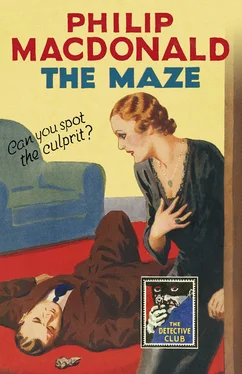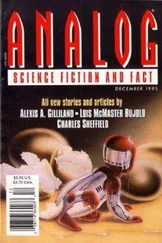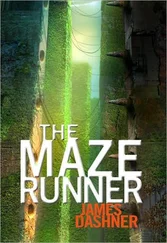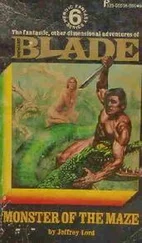I had originally intended to write this letter and ask your permission to send you the papers (verbatim report of inquest, etc.). On maturer thought, however, I have decided to enclose copies of these herewith, for it has struck me that your answer to a request as to whether one might send papers would be useless, whereas your reaction to a bundle of papers might well be one of sufficient curiosity at least to make you read them through. And if you do read them through I am convinced that the sheer complexity of an apparently simple business will decoy you into spending thought upon it—and that, after all, is what we really want.
With all my respects to your wife and admiration to your small son,
Yours very sincerely,
E. LUCAS
VERBATIM REPORT OF EVIDENCE GIVEN AT THE CORONER’S INQUEST HELD UPON THE BODY OF MAXWELL BRUNTON, DECEASED (1st DAY)
I
L.I. 84833 SERGEANT GEORGE CRAWLEY,
METROPOLITAN POLICE
W HAT is your full name?
George Crawley.
Now, will you please take the oath.
I swear by Almighty God that what I shall say in evidence in this Court shall be the truth, the whole truth, and nothing but the truth.
You are a sergeant in the Metropolitan Police Force?
Yes. L.I. 84833. Full-Sergeant George Crawley.
Would you please tell the Court, Sergeant, the circumstances under which you were called to 44 Rajah Gardens in the early morning of Thursday last, the twelfth of July .
I was going round the beats. I had just spoken to the constable in charge of the Baroness Gardens—Stukeley Road beat, and was walking on to my next point, going through the northern end of Rajah Gardens, when a man ran out of one of the houses and hailed me. Time 2.40 a.m. He told me he was a servant at Number 44, Mr Maxwell Brunton’s. He was agitated and made a rambling statement which I had some difficulty in following. He was dressed in a dressing gown and slippers. On the doorstep there was a gentleman in evening dress. He said he was Mr Brunton’s secretary, and he himself had just made the discovery that Mr Brunton was dead in his study. I asked to see the room, and this gentleman, Mr Harrison, said he would take me up. There were a number of the other inmates of the house gathered round in the hall. I asked them to stay where they were until sent for. I also sent the manservant, Jennings, to fetch the constable on the beat and told him to let me know when he arrived.
I then mounted the stairs with Mr Harrison, who took me to the deceased’s study. This is a room at the western side of the house. It is a room which has been built out over the area which lies below, beside the passage leading through from the street to the gardens belonging to the block. There is only one door to this study. This door faces you as you go down the corridor after turning left from the landing …
One moment, Sergeant. Have the police any plans of this house? Perhaps the jury might like to see them.
Yes, sir. One was put in with the other Police papers. I think it was marked Number 6 on the docket.
Ah! … Number 6 you said. Yes! Yes! Stupid of me … Gentlemen, you may like to pass this plan round among yourselves.
. . . . . .
Thank you. I hope the plan is clear to you all.
. . . . . .
Excellent! Now, Sergeant, if you’ll continue …
Very good, sir. I entered the study and found the body of the deceased lying on the hearth-rug. With the police papers, sir, there’s a plan of the room showing the exact position of the body. The head was pointing toward the centre of the bay window and the feet toward the door. Deceased was dead. I judged life to have been extinct for quite a while. The only injury I could find on examination was to the right eye. This had been penetrated, the object which effected the injury having pierced apparently right through to the brain. There was a good deal of blood. Lying by the body was a large lump of mineral which I took to be gold quartz. That mineral lump is among your exhibits, sir. I found the long spur which projects from one end of it to be covered with blood. The lump was lying at some distance from the body at the spot marked Q on the plan which you will see is close by the foot of the writing-table. There were no signs of struggle or any disturbance in the room. All the furniture, papers, etc., on the desk were quite tidy.
I made a rapid plan of the room and then went downstairs again with Mr Harrison, locking the door and retaining the key.
One moment, Sergeant. Did you examine the windows of the study?
Yes, sir. They were all open. You will remember it had been a hot night, sir. I examined the windows particularly with a view to ascertaining whether it would have been possible for anyone to leave the room by that means. In my opinion, sir, such a thing was impossible. The room is on the second story of the house, and being built on extra, as it has, there is simply a clean drop down to the back area of the kitchen. There is nothing on the wall for foot or hand-hold. There are no trees near by, and there is nothing near the windows inside the room which could have been used to sling a rope round.
I see. Thank you, Sergeant. You were saying that you went downstairs with Mr Harrison.
Yes, sir. When we got to the foot of the stairs I found that the manservant had returned with a constable. I placed the constable on duty outside the door and then telephoned to my headquarters and reported. I was given instructions to take preliminary statements from the members of the house, and did so. Those statements are, I believe, together with the other statements taken later, in the police papers which you have got, sir.
I see … Now, Sergeant, one or two questions. You were the first outside person to enter this house, and your impressions may be of value. Can you tell us how the different members of the family seemed to be reacting to the discovery of Mr Brunton’s death? In what order did you see them?
Mr Harrison first, sir, then Mrs Brunton, then Mr Adrian Brunton, then Mrs Bayford, the deceased’s sister, then Mr Hargreaves, a visitor. That was all, sir. I couldn’t take any statement from the other visitor, Miss Lamort, because she wasn’t in a fit state. The five persons I’ve just mentioned, sir, they were all very quiet, as you might say. Seemed more stunned than anything else, though all answered the questions I put to them without hesitation.
You say, Sergeant, that Miss Lamort was so much agitated that she could not be questioned. What was she doing? Was she fainting? Or in hysterics? Or in a state of collapse?
I should say a state of collapse, sir. Miss Lamort was not one of those persons in the hall when I first entered the house. She was not in the hall when I came downstairs after examining the study. What happened was this: I looked round and then I asked Mr Harrison—he seemed the most collected of those persons—I asked Mr Harrison whether everyone was there. He then told me that there were three inmates of the house presumably still in their bedrooms—the kitchenmaid Violet Burrage, Mrs Brunton’s maid Jinette Bokay, and Miss Lamort. I left the constable in charge downstairs and went up with Mr Harrison to rouse these three persons. The girl Burrage was fast asleep; we had to enter her room and wake her, and it took us quite a time. The young woman Bokay was already awake—she said the disturbance in the house had roused her. She was beginning to dress when we got there and seemed very scared. Those two rooms were in the top or attic story of the house, as you will see from the plan. It’s up there that all the servants sleep. We then came downstairs, and Mr Harrison took me to Miss Lamort’s room. There was a light shining under the door. The door was locked. Mr Harrison and I both took turns at knocking but could not get any reply for quite a while. At last we heard Miss Lamort’s voice asking, ‘Who’s there? Who’s there?’ Mr Harrison answered. He explained that there had been an accident and that everybody was wanted. We heard Miss Lamort getting out of bed. She came to the door at once and opened it. When she saw my uniform she seemed to stagger. She nearly fell, only Mr Harrison caught her in time. She said: ‘What’s happened? What’s happened?’ Mr Harrison told her that there had been an accident and that Mr Brunton was dead and that naturally the police had to make a few inquiries. She then said: ‘I must get some clothes on. I’ll come down.’ I waited. In a very short time she came to the door again, dressed, and I asked her to accompany me downstairs.
Читать дальше












